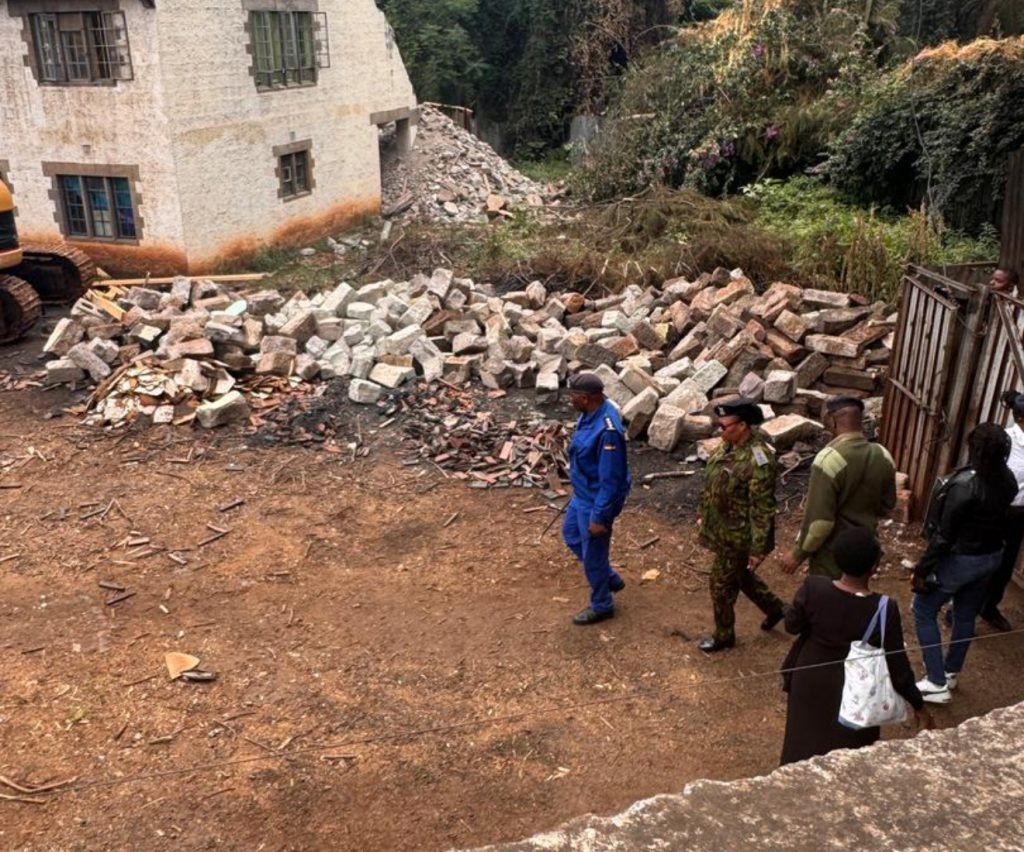Some nine steel manufacturers were a fortnight ago thrust into the limelight following an unprecedented decision by the Competition Authority of Kenya (CAK) to hit them with a fine of Sh338.84 million accusing them of price fixing.
This is a record fine ever handed by CAK in an apparent move to send a message, but the manufacturers have raised critical questions about the whole saga in what is now set to put a spotlight on the competition watchdog.
The millers who were fined include Devki Steel Mills, Tononoka Rolling Mills Limited, Jumbo Steels Limited, Nail and Steel Mills Limited and Doshi and Hardware Limited. Others are Accurate Steel Mills Limited, Brollo Kenya Limited, Corrugated Steel Limited and Blue Nile Wire Products Limited.
Devki Group of Companies (DGC), the parent company of Devki Steel Mills, has however refuted CAK’s price fixing claim and has already moved to the Competition Tribunal appealing against its Sh46.29 million fine.
Devki, through its lawyers KRK Advocates LLP, on September 1, 2023 filed a notice of its intention to appeal against the competition watchdog’s decision.
“Take notice that Devki Steel Mills Limited, being dissatisfied with the decision of the Competition Authority of Kenya (CAK) given at Nairobi on the 17th day of August 2023 intends to appeal to the Tribunal against the decision of the Authority,” said Devki in the notice.
Devki has maintained to the Consumers Federation of Kenya (COFEK) that the allegations by CAK against it are false and that it will clear its name from any wrongdoing at the Tribunal.
“At no time have we engaged in such unethical practices. The amalgamated claim of imagined violations against ourselves are not only misplaced, erroneous, vexatious but one that is calculated to besmirch our good name without evidence,” said a source at Devki.
Even as the steel miller prepares to defend its innocence at the Tribunal, CAK has itself come under scrutiny after it emerged that four other firms who were initially in the list of manufacturers that were sanctioned mysteriously vanished from the list without any explanation from CAK.
Under Article 10 and 35 of the Constitution, CAK is obligated to explain to the public the identity of the firms it pulled off the hook, the legal and moral basis of the same being fully disclosed.
“There are some high-placed people who have the wrong notion that the steel industry makes obscene profits. Unknown to them, the industry runs on very heavy investments including high cost of power. Frustrated that they were not accessing the funds, they went ahead and unleashed CAK on the innocent steel firms like Devki. Those who “cooperated” were let off the hook,” an expert in metallurgy told COFEK on a strict call of anonymity.
Although the Competition Tribunal exists to either adopt, vary and or dismiss decisions of CAK, the watchdog body is evidently vested with massive and overlapping powers on what, when and how to investigate, prosecute to itself and make a finding and finally punish – by way of a penalty.
Under the circumstances, the Competition Tribunal comes in more or less as an Appeal Court of sorts – on matters competition and consumer protection. What it means to any keen observer, therefore, is that CAK is both the investigator, prosecutor, the jury and revenue collector in one.
Another major question is how CAK arrived at the fines it handed the nine companies. Some firms were slapped with huge fines, which raises questions over the appropriateness of the fines.
The Competition Act allows CAK to impose a financial fine of up to 10 percent of a company’s gross annual turnover of the year preceding the Authority’s decision. The severity of the penalty is influenced by many factors including duration and scale of the violation, harm to consumers, as well as cooperation by the parties.
CAK, without notice, raided business premises of the steel firms in its fact-finding mission and carted away material it believed would be key evidence in its case against the companies.
Further, it is easy to claim someone was involved in price-fixing. It is also easy to even forge and or use in-house enemies of the industry to claim minutes confirming restrictive acts or price fixing was being done.
But the key question is, does it mean that if one meets and or talks to a competitor then it is an anomaly? What if it was a telephone call? Then what is the meaning of registered industry lobbies?
Some of the lawyers COFEK spoke to revealed that the Competition Act is potentially unconstitutional and that it vests too much power on a non-independent institution to harass professional businesses.
The key principle of separation of powers in criminal justice was avoided in this legislation. But why is this the situation?
To get this picture clearly, let’s look at the reading of Sections 36, 37 and especially 38 of the Competition Act. Even before that, Section 18 offers CAK the equivalent power of parliament on holding enquiries.
Section 18(6) is even more telling. “Every person, undertaking, trade association or body shall be under an obligation to provide information requested by the Authority in fulfilment of its statutory mandate for conducting an inquiry or sectoral study regulated by this section”.
This section is particularly conspicuous as it almost reads exactly what Article 125 of the Constitution says on power to call for evidence. It is interesting why a body that has no form of independence (from the National treasury and the Executive, generally) would be given such massive power.
Such powers would close down many businesses and or lead to huge bribes should CAK be run by a rogue director general. It’s a huge discretion where “reasonable” and “believe” are pegged on a person(s) not under oath.
From the questionable process of investigation, the extreme length of time it took, framing of the charges and unsupported findings, it is clear that CAK has a tough role sustaining their ruling both at the Competition Tribunal and or the High Court.
Such actions by government bodies throw a spanner in development of the local manufacturing industry which is a key creator of jobs which is crucial especially at a time unemployment is emerging as a ticking time bomb.
Manufacturing is a significant contributor to the country’s growing economy, but manufacturers continue to face mounting challenges that are jeopardising the sector’s ability to contribute an even larger share to economic output.
According to the Economic Survey of 2023, manufacturing contributed about 7.2 percent of Kenya’s Gross Domestic Product (GDP), but what should worry decision makers is that this share has been rapidly dropping, coming down from 9.3 percent of the GDP in 2016.
Kenya aims to grow the manufacturing sector’s contribution to the GDP to 20 percent by 2030, but to achieve this, the government must move with speed to remove some of these tight nooses that are strangling manufacturers.




